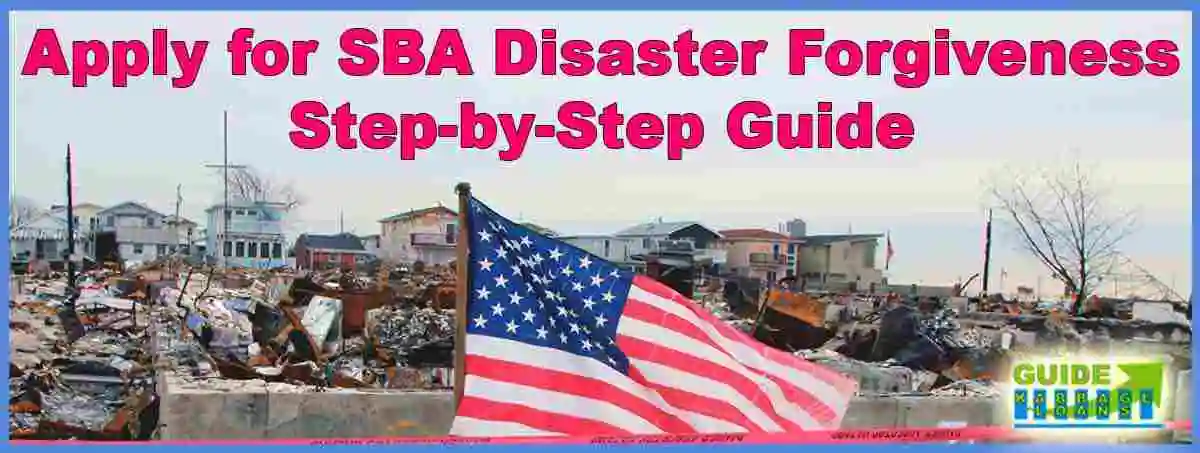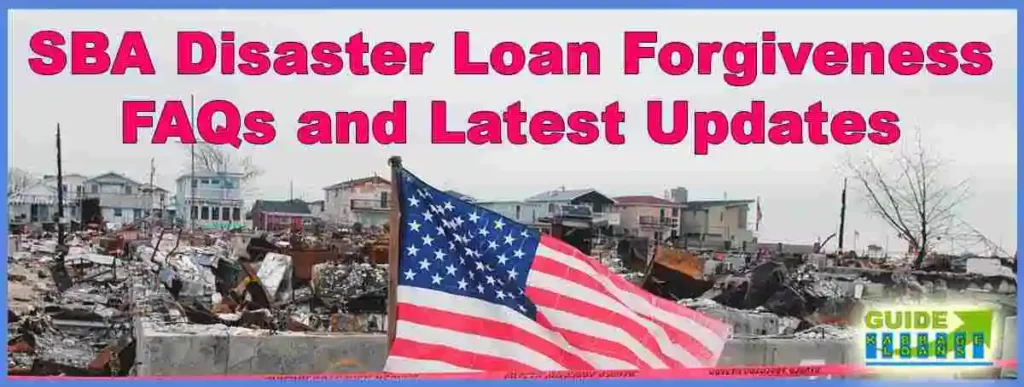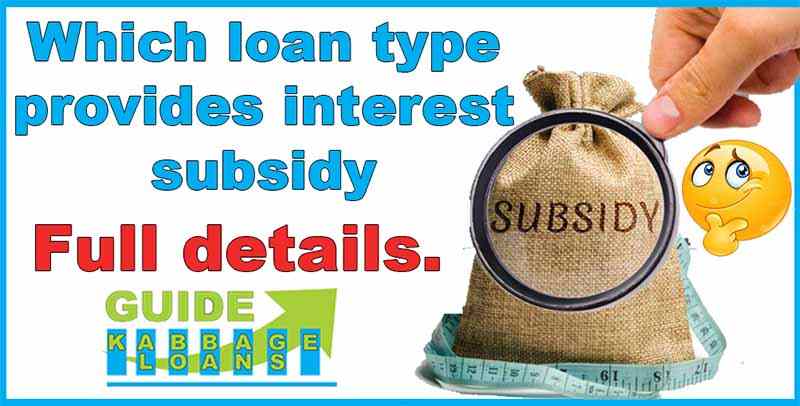Last updated on October 7th, 2024 at 01:39 pm
When we take an SBA loan to start any small business and due to some reason the business gets ruined and we are not in a condition to repay that loan. In such a condition, we remember only one thing, loan forgiveness. Yes friends, today we will talk about SBA Disaster Loan Forgiveness. In this article, you will learn what an SBA disaster loan is, how to apply, who is eligible, and what documents are required to apply for it.
What is an SBA disaster loan?
SBA disaster loans are low-interest loans that are designed to help small businesses, homeowners, and renters recover from disasters. These loans are available to businesses of all sizes, including sole proprietors, independent contractors, and non-profit organizations.
The loans can be used to repair or replace damaged property, machinery, equipment, and inventory, as well as cover operating expenses such as payroll and accounts payable.
Does SBA forgive disaster loans?
The short answer is yes, SBA does forgive disaster loans, but not all of them. SBA offers loan forgiveness under certain circumstances. Borrowers are required to repay the full amount of these loans. However, there is a silver lining for those who received an EIDL emergency advance (commonly known as the EIDL Grant or Targeted EIDL Advance) during the pandemic.
The good news is that this advance does not need to be repaid, and the IRS will not count it as taxable income. So, while the general SBA disaster loans must be repaid, this particular advance is exempt from repayment and taxation.
Applying for SBA Disaster Loan Forgiveness: A Step-by-Step Guide

Applying for an SBA Disaster Loan can seem daunting, but breaking it down into simple steps can make it easier. Here’s a straightforward guide to help you through the process:
- Check Eligibility: Ensure you’re eligible for the loan. Homeowners, renters, businesses, and non-profits affected by a disaster can apply.
- Prepare Documents: Gather necessary documents like tax returns, proof of income, and property damage estimates.
- Apply Online: You can apply for disaster assistance online at the SBA website (SBA.gov/disaster) or get more information by calling 800-659-2955.
- Submit Application: Double-check your information and submit your application.
- Await Approval: The SBA will review your application. They might ask for more information, so be prepared to provide additional documents.
- Receive Funds: Once approved, the SBA will disburse the loan funds to help with your recovery.
- Repayment: Understand your loan terms and start repayment after 12 months from the first disbursement.
- Contact customer support: If there is any confusion then you can talk to customer support
Remember, applying early increases your chances of getting the funds you need promptly. If you need assistance, SBA representatives are available to help at various centers.
(( For more detailed information, visit FEMA’s Fact Sheet. ))
Are SBA disaster loans forgivable for small businesses?
Yes, SBA disaster loans are forgivable for small businesses under certain circumstances. Those who cannot repay their SBA loan may apply for loan forgiveness through a process known as an “offer in compromise.” This means that the SBA will review the case and discuss the situation with the lender, but approval of the forgiveness request is not guaranteed. The SBA evaluates each case individually to determine if loan forgiveness is appropriate.
(( For more details you can visit the SBA-attorneys website))
What are the eligibility requirements for SBA disaster loan forgiveness?
The eligibility requirements for SBA disaster loan forgiveness depend on the program through which you received your loan. For PPP loans, you must have used the loan proceeds for eligible expenses such as payroll, rent, and utilities. You must also maintain your employee headcount and salary levels to be eligible for full forgiveness.
For EIDL loans, the eligibility criteria are slightly different. To be eligible for loan forgiveness, you must have used the loan proceeds for working capital expenses such as payroll, rent, and accounts payable. Additionally, you must have suffered economic injury as a direct result of the disaster.
Can I get my SBA disaster loan forgiven if my business was affected by COVID-19?
Yes, if your business was affected by COVID-19, you may be eligible for loan forgiveness under the PPP loan forgiveness or EIDL loan forgiveness programs. The SBA has made several changes to these programs to provide more flexibility to borrowers affected by the pandemic.
How long does it take for SBA disaster loan forgiveness to be approved?
The time it takes for SBA disaster loan forgiveness to be approved can vary depending on several factors, such as the complexity of your application and the volume of applications the SBA is processing. However, the SBA aims to process loan forgiveness applications within 90 days of receipt.
What documentation do I need to provide for SBA disaster loan forgiveness?

The documentation required for SBA disaster loan forgiveness can vary depending on the program and the size of your loan. In general, you will need to provide proof of how you used the loan funds, including invoices, receipts, and payroll records.
To apply for SBA Disaster Loan forgiveness, you need:
- Loan Forgiveness Application Form (SBA Form 3508, 3508EZ, or 3508S)
- Payroll Documents: Bank statements, tax forms (e.g., IRS Form 941), payment receipts for health insurance and retirement plans
- Non-Payroll Documents: Mortgage interest, rent or lease payments, utility payments, and other eligible expenses
You may also need to provide financial statements and tax returns to demonstrate your financial need and eligibility.
Conclusion
SBA disaster loan forgiveness can be a lifesaver for small businesses struggling to recover from a disaster or pandemic. It’s important to understand the eligibility requirements and application process to increase your chances of success. If you have any questions or concerns, reach out to the SBA or a trusted financial advisor for guidance. With the right support and documentation, you can receive the forgiveness you need to move forward and thrive.
Faq’s
Can I apply for SBA disaster loan forgiveness if I received a loan through the Paycheck Protection Program (PPP)?
Yes, businesses that received a PPP loan and an SBA disaster loan can apply for forgiveness for both loans. However, the forgiveness program and requirements for PPP loans and SBA disaster loans are different, so it is important to follow the guidelines for each loan program.
What expenses can be covered by SBA disaster loan forgiveness?
Eligible expenses for SBA disaster loan forgiveness vary depending on the specific loan program and forgiveness guidelines. However, eligible expenses may include payroll costs, rent or mortgage payments, utilities, and other operational expenses.
Is there a deadline for applying for SBA disaster loan forgiveness?
The deadline for applying for SBA disaster loan forgiveness varies depending on the specific loan program and forgiveness guidelines. Some programs have specific deadlines for applying, while others may not have a deadline. It is important to check the guidelines for the specific loan program to determine the deadline for applying.
Can I get my SBA disaster loan forgiven if I used the funds for non-eligible expenses?
No, businesses must use their SBA disaster loan funds for eligible expenses to be considered for forgiveness. If businesses use the funds for non-eligible expenses, they may not be eligible for forgiveness.
What happens if my SBA disaster loan forgiveness application is denied?
If your SBA disaster loan forgiveness application is denied, you may have the opportunity to appeal the decision or apply for other relief programs. It is best to consult with the SBA or a financial advisor to determine the best course of action.
Will SBA disaster loan forgiveness affect my credit score?
No, SBA disaster loan forgiveness should not affect your credit score. However, it is important to make sure that your loan payments are up-to-date and that you meet the eligibility requirements for forgiveness to avoid negative impacts on your credit score.
Thanks for your visit.
(SBA Disaster Loan Forgiveness: FAQs and Latest Updates)
Disclaimer: The information provided in this article is for general informational purposes only and should not be considered legal or financial advice. Always consult with a qualified professional before making any financial decisions. The SBA guidelines and requirements may change, so referring to official SBA resources or seeking expert advice is essential.





